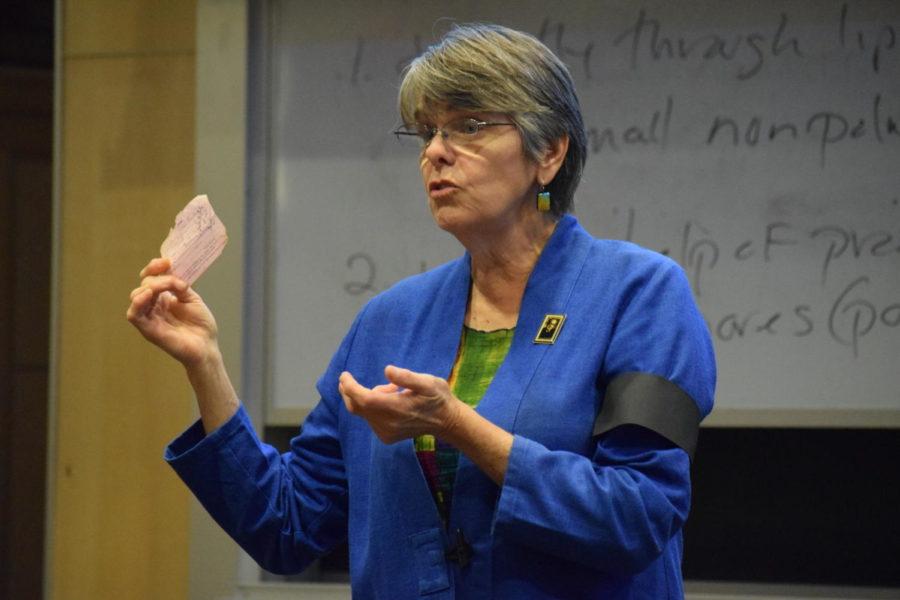Students who protested Vietnam War in 1969 Tinker court case to visit Iowa State
Mary Beth Tinker holding her original detention slip after she wore a black armband to school to protest the Vietnam War (with a replica on her left arm) during a speech at Textor Hall, Ithaca College, 19 September 2017.
February 24, 2019
Mary Beth and John Tinker will be speaking about their role in a landmark Supreme Court case and the case’s significance in the current political climate in “Stand Up! Speak Up! Youth & the First Amendment” at 7 p.m. Monday in the Great Hall of the Memorial Union.
Feb. 24, 1969, marked the decision for Tinker v. Des Moines Independent School Systems, when Mary Beth Tinker, John Tinker and their friend Christopher Eckhardt were suspended for wearing black armbands to school to protest the Vietnam War and support the Christmas truce.
“The Tinker ruling is still cited in nearly every student First Amendment case,” according to the Tinker Tour website.
Since 2013, Mary Beth and John Tinker have gone on their “Tinker Tour” around the United States to continue spreading their story and advocating for the rights of children and youth.
“The goal of [the] tour was to bring real-life civics lessons to students through the Tinker armband story and the stories of other young people,” according to the Tinker Tour website.
“It’s important because its a time to celebrate the input, the voices, the rights of youth,” Mary Beth Tinker said. “A time to say that we want to hear from youth, we need to hear from youth and they need to be a part of our democracy. Our society is much stronger, much better when young people weigh in and have a say in policies that affect all of us.”
The purpose of the Tinker Tour is to encourage students and young adults to stand up and speak out. In order to be able to effectively use their rights, students must first know what their rights are, and the Tinker Tour aims to bring awareness to those rights.
“There is a power in the knowledge that young people have,” Mary Beth Tinker said. “It’s a new perspective on the world. It is seeing through the hypocrisy, having the energy to take action and do something about it.”
The lecture is part of the National Affairs Series: Building a Better Democracy and the First Amendment Day Series, and is co-sponsored by the ACLU of Iowa, the First Amendment Series, National Affairs, the Patricia Miller Fund and the Committee on Lectures.
















